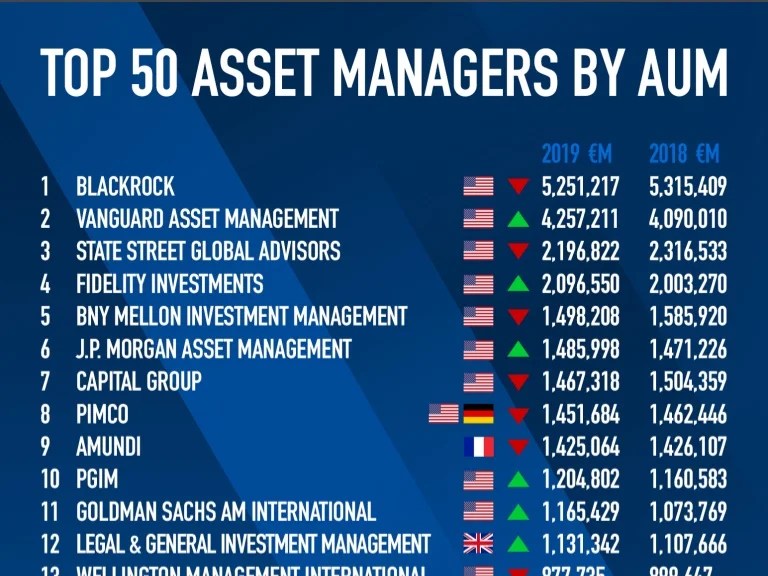Asset management firms set the stage for this enthralling narrative, offering readers a glimpse into a story that is rich in detail and brimming with originality. Get ready to dive into the world of wealth management with a twist, American high school hip style!
As we explore the role, functions, and key services of asset management firms, prepare to be amazed by the intricacies of this financial industry powerhouse.
Overview of Asset Management Firms
Asset management firms play a crucial role in helping individuals and institutions manage their investments to grow their wealth over time. These firms provide a range of financial services and expertise to assist clients in achieving their financial goals.
Services Offered by Asset Management Firms
Asset management firms offer a variety of services to their clients, including:
- Portfolio Management: Asset managers help clients build and manage investment portfolios tailored to their financial objectives and risk tolerance.
- Financial Planning: These firms assist in creating comprehensive financial plans that align with clients’ long-term goals, such as retirement planning or wealth preservation.
- Risk Management: Asset managers help clients mitigate investment risks through diversification and strategic asset allocation.
- Wealth Management: Firms offer services to manage and grow clients’ wealth through investments in stocks, bonds, real estate, and other asset classes.
Importance of Asset Management Firms
Asset management firms are essential in the financial industry for several reasons:
- Expertise: Asset managers have specialized knowledge and experience in financial markets, allowing them to make informed investment decisions on behalf of their clients.
- Diversification: By spreading investments across different asset classes, asset management firms help reduce risk and enhance returns for clients.
- Personalized Approach: These firms tailor investment strategies to meet the unique needs and risk profiles of individual clients, ensuring a customized approach to wealth management.
- Long-Term Growth: Asset managers focus on long-term investment strategies that aim to grow clients’ wealth steadily over time, providing financial security for the future.
Types of Asset Management Firms

In the world of asset management, there are two main categories of firms: traditional and alternative. Each type has its own unique characteristics and investment strategies.
Traditional Asset Management Firms
Traditional asset management firms focus on long-term investments in traditional asset classes like stocks, bonds, and mutual funds. These firms typically follow a buy-and-hold strategy, aiming to provide steady returns over time. Examples of well-known traditional asset management firms include Vanguard, Fidelity Investments, and BlackRock.
Alternative Asset Management Firms
On the other hand, alternative asset management firms specialize in non-traditional investments such as real estate, private equity, hedge funds, and commodities. These firms often employ more complex investment strategies, including leveraging, short-selling, and derivatives trading. Examples of prominent alternative asset management firms include Bridgewater Associates, AQR Capital Management, and The Carlyle Group.
Investment Strategies
Traditional asset management firms typically focus on diversification and long-term growth through a mix of stocks and bonds. They aim to provide stable returns while minimizing risk. On the other hand, alternative asset management firms often seek higher returns by investing in less liquid and more volatile asset classes, taking advantage of market inefficiencies and unique investment opportunities.
Regulatory Environment
Both traditional and alternative asset management firms are subject to regulations set by government agencies like the Securities and Exchange Commission (SEC) in the United States. These regulations aim to protect investors, ensure transparency, and maintain market integrity. Asset management firms must comply with various rules and standards to operate legally and ethically in the financial industry.
Client Relations and Services
Building and maintaining relationships with clients is crucial for asset management firms to ensure trust and satisfaction. This involves personalized services and effective communication to meet the clients’ financial goals.
Creating Customized Investment Portfolios
Asset management firms create customized investment portfolios for clients by conducting thorough assessments of their financial situation, risk tolerance, and investment objectives. This process involves analyzing various asset classes, diversifying investments, and regularly reviewing and adjusting the portfolio to align with the client’s goals.
Communicating Market Trends and Investment Opportunities
Asset management firms communicate with clients about market trends and investment opportunities through regular updates, newsletters, and in-depth reports. They provide insights into market conditions, potential risks, and opportunities for growth, helping clients make informed investment decisions.
Importance of Transparency and Trust
Transparency and trust are essential in client relationships for asset management firms. By being transparent about fees, performance, and investment strategies, firms can build trust with clients and foster long-term relationships. Clients need to feel confident that their assets are being managed responsibly and in their best interests.
Technology and Innovation in Asset Management
In today’s digital age, technology plays a crucial role in revolutionizing asset management practices. Asset management firms are constantly leveraging innovative technologies to enhance portfolio management, analysis, and client services.
The Role of Artificial Intelligence and Machine Learning
Artificial intelligence (AI) and machine learning have significantly impacted asset management practices. These technologies enable firms to analyze vast amounts of data quickly and accurately, leading to more informed investment decisions. AI algorithms can identify patterns, trends, and correlations in the market, helping asset managers optimize portfolios and mitigate risks effectively.
Robo-Advisors in Asset Management
Robo-advisors are automated platforms that provide financial advice and investment management services with minimal human intervention. These digital advisors use algorithms to create and manage diversified investment portfolios based on clients’ risk tolerance, financial goals, and preferences. Robo-advisors offer cost-effective solutions, accessibility, and convenience, making them popular among tech-savvy investors.
Benefits and Challenges of Fintech Solutions
Incorporating financial technology (fintech) solutions in asset management firms offers numerous benefits, such as improved operational efficiency, enhanced data analytics, and personalized client experiences. Fintech tools streamline processes, reduce manual errors, and enable real-time monitoring of investments. However, challenges like cybersecurity risks, regulatory compliance, and data privacy concerns must be addressed to fully leverage the potential of fintech in asset management.
